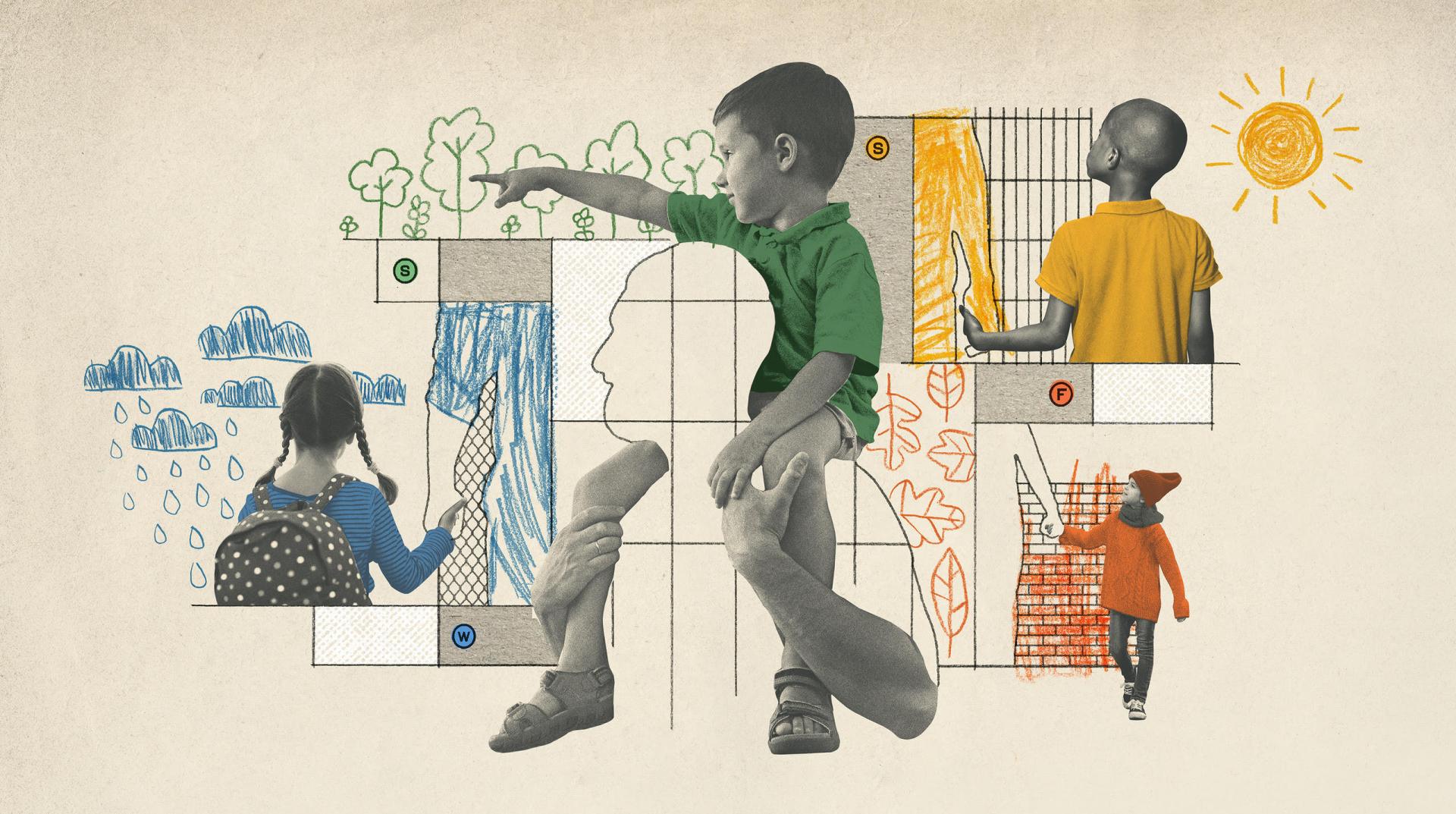Every child enters the world embodying two beautiful truths: They are made in the image of God, and they are wholly unique. Through a combination of nature and nurture, personalities take shape, interests and hobbies are discovered, and hopes and dreams are cultivated. During childhood, trusted adults provide a stable and enriching environment where children can flourish.
But for a staggering number of children—one in every 49, exceeding 1.5 million—parental incarceration disrupts their formative years; the emotional toll is devastating, leaving children vulnerable to trauma, separation anxiety, and daily struggles beyond their control.
Seeing these profound needs, many organizations work to support the children of incarcerated parents, especially around the holidays. While such generosity is commendable, it often falls short of addressing the ongoing challenges these families face. But by investing in consistent, year-round outreach, churches can honor the inherent dignity and dreams of these children, equipping them with the resources and emotional support they need to hold fast to their hopes, break the cycle of trauma, and build brighter futures.
The Human Cost of Incarceration
While not incarcerated themselves, children of incarcerated parents often experience a similar sense of isolation and disruption. Karen Roscigno, who took custody of her grandchildren after her daughter’s sentencing, recalls how Riley and Angel would still cry for their mother years into her imprisonment. Roscigno says that families are "doing time” alongside their loved ones, and for many like Roscigno, this sudden shift in responsibility can carry a significant emotional, physical, and logistical burden.
The trauma of having an incarcerated parent also lingers long after release. Nine-year-old Devin and three-year-old Jordyn witnessed their mother, Johnna, being dragged away from their home by officers with guns drawn. Jordyn couldn't grasp why her mom wouldn't come home. When Johnna finally did so almost six years later, Jordyn and Devin struggled to accept her as an authority figure. They had spent so many formative years being raised by their grandparents, and now they had to readjust while Johnna faced challenges like finding housing and employment as she tried to reintegrate into society.
Johnna, Devin, and Jordan eventually found their way, but the road was often bumpy, with the scars of Johnna's incarceration remaining even after she made her way home.
These complex layers of readjustment and emotional turmoil often result in a desire for normalcy and stability that can be difficult to achieve due to systemic challenges and persistent shadows of the past. This necessitates comprehensive support systems that address both immediate crises and long-term healing.
Connecting Children to Churches
Similar stories are common among these families. And while seasonal programs like Christmas gift drives offer valuable temporary encouragement, these families need ongoing investment in their physical, emotional, and spiritual well-being.
Churches are uniquely positioned to provide comprehensive support to families of the incarcerated. As children often struggle with loneliness and isolation, the church can offer a sense of belonging. Changes in parental custody or the powerlessness experienced when a parent is incarcerated far away can create profound insecurity, while the church can provide stability and safety.
Many congregations already address physical needs through outreach efforts like food pantries, clothing drives, and community events, combining practical resources with spiritual support. These regular interactions convey to families that they are not alone in their struggles, which is a valuable message for children of incarcerated parents.
Stephen Wilson, prison ministries campus pastor at Gateway Church in Dallas, Texas, emphasizes the importance of further integrating people affected by incarceration into the full life of the church. Together, prison-specific programs and other church ministries can form a strong support network. Gateway participates in Angel Tree Christmas, allowing congregants to sponsor gifts from incarcerated parents to their children. This ministry allows the church to identify families, connect with them, and invite them to participate in ongoing activities.
Gateway's holiday outreach touched one such family. In January, a mother supported by this ministry contacted the church again, facing difficulty paying bills. Gateway offered financial support and connected them with a local partner who donated furniture for their home. This act of kindness resonated deeply, leading the entire family to attend a Gateway service. On the way to church, one of the children expressed a desire to be baptized. Though initially hesitant due to it being their first visit, the mother learned it was Gateway's baptism weekend, and by the end of the service, the whole family–mother and children alike–was baptized together. This ministry's impact went far beyond the Christmas season, allowing the family to enter into a relationship with Jesus and join a community of believers where they can grow in their faith and receive spiritual and practical support.
Wilson personally understands the importance of including children of incarcerated parents in the full life of the church, having been incarcerated himself. The kindness shown by a local church to his children, then aged seven, five, and two, made a significant positive impact on their lives. The church ministered to his family in ways that addressed their specific needs without judgment. Wilson continues this approach, leading Gateway's congregants to partner with prison-specific programs like Angel Tree and incorporating those affected by imprisonment into all aspects of church life.
Taking Action in Your Community
Every action, no matter how seemingly small, contributes to a brighter future for the children of incarcerated parents. Here are practical ways you can help:
- Deepen your church’s understanding through personal stories. Begin by inviting members of your congregation who have personal or family experience with incarceration to share their stories. These firsthand accounts offer valuable insights and humanize the issue, fostering empathy and commitment.
- Build awareness and mobilize support for the cause. Organize educational events or discussions featuring experts on the impact of incarceration on families. This can raise awareness, build a supportive community spirit, and identify volunteers passionate about supporting this cause.
- Establish a partnership with Angel Tree. Collaborate with Prison Fellowship Angel Tree. They offer resources, guidance, and a framework to help your church minister to local families with a parent in prison. Angel Tree can guide you through the process, from providing gifts at Christmastime to understanding best practices for engaging with and supporting these families year-round.
Your church can quickly transition from concern to active support, providing meaningful assistance to local children who need it most. Through collaboration with Prison Fellowship, the world's largest Christian nonprofit supporting prisoners, former prisoners, and their families, your congregation can connect with these vulnerable children and welcome them into your ministries year-round.
Learn more about how you can extend the hope of the gospel to children with incarcerated parents.
Posted

